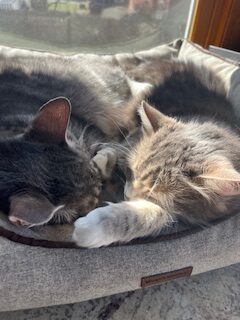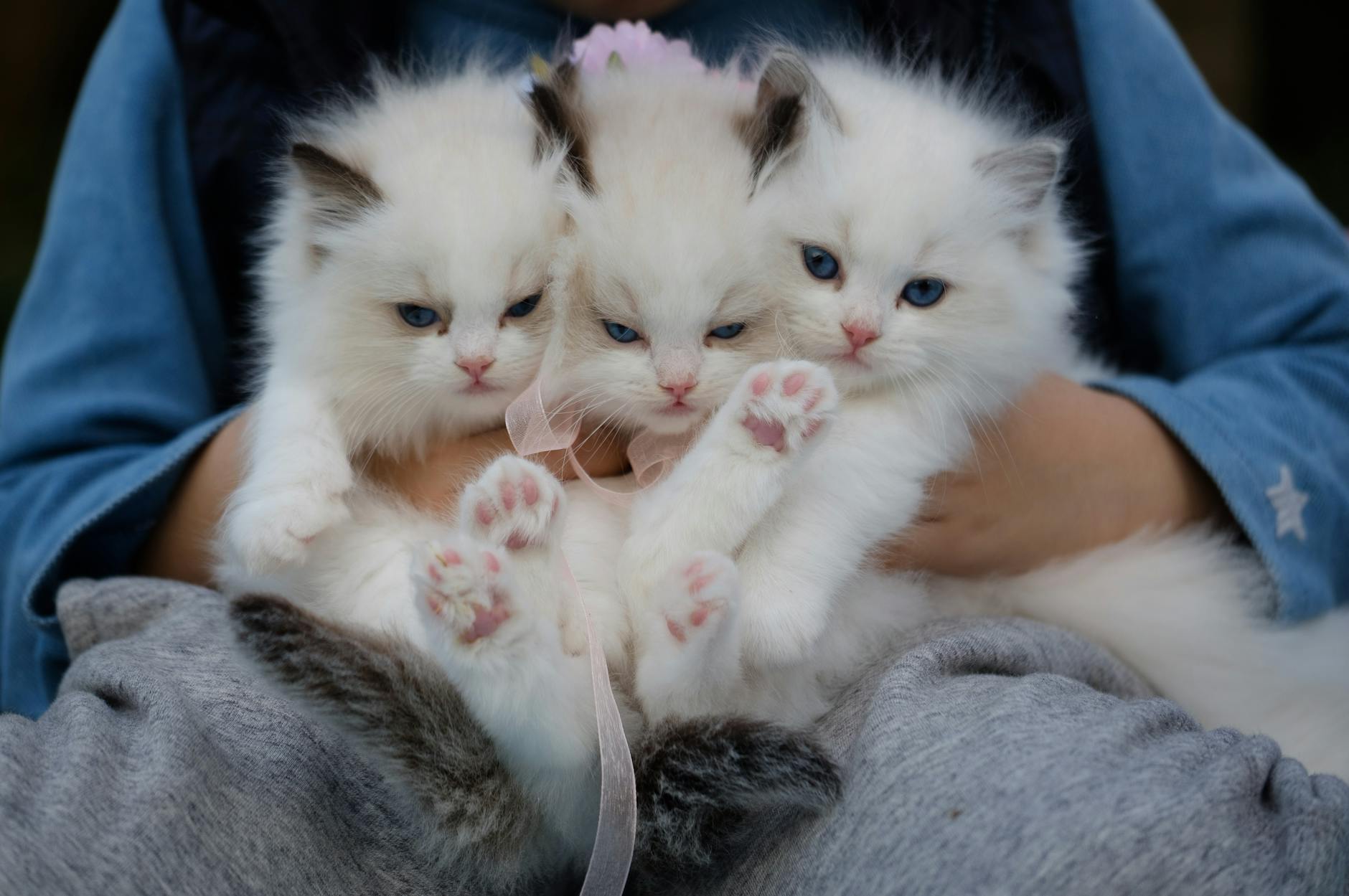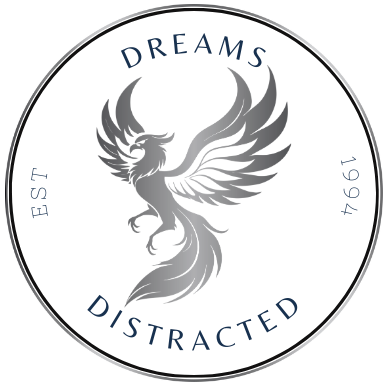The Enigmatic Relationship Between ADHD and Our Feline Friends
Do you ever wonder if your cat’s erratic behavior could be more than just feline quirkiness? Many cat owners have noticed their pets displaying hyperactive and inattentive traits that seem oddly familiar to people living with ADHD. While ADHD isn’t officially recognized in cats, exploring this topic can provide valuable insights for both current and potential cat owners, helping them better understand and support their furry friends. Delve into the fascinating world of feline behavior and discover if your cat might be showcasing behaviors akin to ADHD.
Exploring ADHD in Cats
Attention Deficit Hyperactivity Disorder (ADHD), a well-known condition in humans, has sparked curiosity about its possible presence in our feline companions. While ADHD in cats is not officially recognized in veterinary medicine, some behavioral traits exhibited by cats may mirror symptoms seen in humans with ADHD.
Behavioral Traits in Cats
Cats, known for their agility and playful nature, can sometimes display behaviors that align with symptoms of ADHD in humans. These behaviors may include hyperactivity, impulsivity, and attention issues. For instance, some cats exhibit excessive running around, constant movement, or difficulty focusing on one activity for an extended period. Others may engage in impulsive behaviors like sudden pouncing or erratic movements, reminiscent of impulsivity in individuals with ADHD.
 Photo by Arina Krasnikova
Photo by Arina Krasnikova
Research and Opinions
Veterinary professionals and researchers have varied opinions on the concept of ADHD in cats. While some believe that certain cats may exhibit ADHD-like traits, others argue that these behaviors could be attributed to natural feline instincts or environmental factors. Studies exploring the possibility of ADHD-like characteristics in cats are ongoing, aiming to shed light on this intriguing topic. As research in this field progresses, more insights may emerge regarding the potential similarities between ADHD in humans and behavioral patterns in felines.
Include external sources related to ADHD in cats:
- American Association of Feline Practitioners
- The Ohio State University College of Veterinary Medicine
Can Cats Have ADHD?
Are you curious about whether cats can have ADHD? Let’s delve into this interesting topic. While ADHD, Attention Deficit Hyperactivity Disorder, is commonly known in humans, its existence in cats is a subject of debate among experts. Let’s explore the insights provided by veterinary professionals and behavioral studies to understand more about this phenomenon.
Veterinary Insight
Veterinary experts generally agree that ADHD in cats is not officially recognized as a medical condition. Cats exhibit behaviors that may appear similar to ADHD symptoms in humans, such as hyperactivity and impulsiveness. However, these behaviors are often considered within the normal range for feline behavior.
Veterinarians explain that the lack of a formal diagnosis for ADHD in cats is due to several factors. One reason is the difficulty in applying human psychiatric classifications directly to animals. Cats’ behaviors are complex and can be influenced by various environmental and genetic factors, making it challenging to pinpoint a specific disorder like ADHD.
Behavioral Studies
Behavioral studies have been conducted to explore ADHD-like behaviors in cats. Researchers have observed cats displaying hyperactive and impulsive behaviors, leading to speculations about feline ADHD. However, the findings of these studies are often inconclusive due to the challenges in diagnosing behavioral disorders in animals.
Studies investigating ADHD-like behaviors in cats have highlighted the importance of considering individual differences in feline behavior. While some cats may exhibit high energy levels and distractibility, these traits do not always indicate a clinical disorder. It is essential to distinguish between normal variations in behavior and symptoms that require medical attention.

Photo by DreamsDistracted
The Connection Between Cats and ADHD
Cats have a remarkable ability to provide comfort and support to individuals with ADHD. The therapeutic role of cats goes beyond simple companionship, as interactions with feline friends can significantly impact those dealing with ADHD. The calming presence of a cat can help alleviate stress, reduce anxiety levels, and even improve focus for individuals with ADHD. Many anecdotal experiences and personal stories highlight the positive effects of having a cat as a furry companion for those managing ADHD.
Therapeutic Role of Cats
Individuals with ADHD often struggle with maintaining focus and managing stress. Cats offer a unique form of therapy through their calming presence and affectionate nature. Spending time petting or playing with a cat can release feel-good hormones, such as oxytocin, which contribute to a sense of well-being and relaxation. The gentle purring of a cat can have a soothing effect, helping individuals with ADHD find a moment of peace in their daily routine.
Real-life examples showcase how cats have become invaluable allies in managing ADHD symptoms. For instance, stories of individuals feeling more at ease and less overwhelmed after spending time with their cats are common. The non-judgmental companionship provided by cats creates a safe space for individuals with ADHD to unwind and destress. The therapeutic benefits of cats extend beyond simple companionship, offering a holistic approach to managing ADHD symptoms.
Cat Behavior as Support
Cats exhibit behavior that can be particularly beneficial for individuals with ADHD. Their predictable routines and structured lifestyle can help create a sense of stability and order in the lives of those with ADHD. The consistency of a cat’s daily habits, such as feeding times and play sessions, can assist individuals in establishing their routines and managing their time more effectively.
The companionship that cats provide is unparalleled, offering a source of emotional support and comfort. The bond formed between a cat and its owner can be a source of strength during challenging moments. Cats are attuned to their owners’ emotions and often offer affectionate gestures when they sense distress or anxiety. This intuitive connection can be especially comforting for individuals navigating the ups and downs of life with ADHD.
To learn more about the potential therapeutic benefits of cats for individuals with ADHD, you can explore additional information here and here.
Cats and ADHD: A Comforting Connection
Living with Attention Deficit Hyperactivity Disorder (ADHD) can pose challenges in daily life, but the companionship of a feline friend can bring unexpected joys and benefits to individuals managing the condition. Let’s explore how the unique traits of cats can positively impact the lives of those with ADHD.
Understanding the Feline Influence on ADHD
Cats are known for their soothing presence and independent nature. For individuals with ADHD, the calming effect of interacting with a cat can provide a sense of stability and relaxation. The quiet companionship that cats offer can create a peaceful environment that aids in reducing stress and anxiety levels. This can be particularly beneficial for those with ADHD who may struggle with hyperactivity and impulsivity.
 Photo by Peng Louis
Photo by Peng Louis
The Therapeutic Role of Cats for Individuals with ADHD
Cats have a natural ability to sense and respond to human emotions. For individuals with ADHD, the presence of a cat can offer emotional support and companionship without the need for constant interaction. The gentle purring and comforting cuddles from a cat can provide a sense of security and alleviate feelings of restlessness or impulsivity. This therapeutic bond can foster a sense of connection and understanding that positively impacts emotional well-being.
Enhancing Quality of Life Through Cat Companionship
Having a cat as a furry companion can bring structure and routine to the daily life of individuals with ADHD. The care responsibilities associated with pet ownership, such as feeding schedules and playtime routines, can help in establishing a sense of consistency and organization. Engaging in activities with a cat, such as interactive play or grooming sessions, can also promote mindfulness and relaxation, contributing to improved focus and attention.
Cultivating Positivity and Comfort in Everyday Life
The presence of a cat in the home can create a nurturing and reassuring ambiance that enhances feelings of comfort and security for individuals with ADHD. The unconditional love and non-judgmental nature of cats can provide a source of emotional support and companionship that promotes a sense of well-being and reduces feelings of isolation. The playful antics and affectionate gestures of a cat can bring moments of joy and levity to brighten even the most challenging days.
In conclusion, the unique relationship between individuals with ADHD and their feline companions highlights the profound impact that cats can have on emotional well-being, stress management, and daily routine. Embracing the therapeutic benefits of cat companionship can contribute to a sense of comfort, companionship, and stability for those navigating the complexities of living with ADHD.

